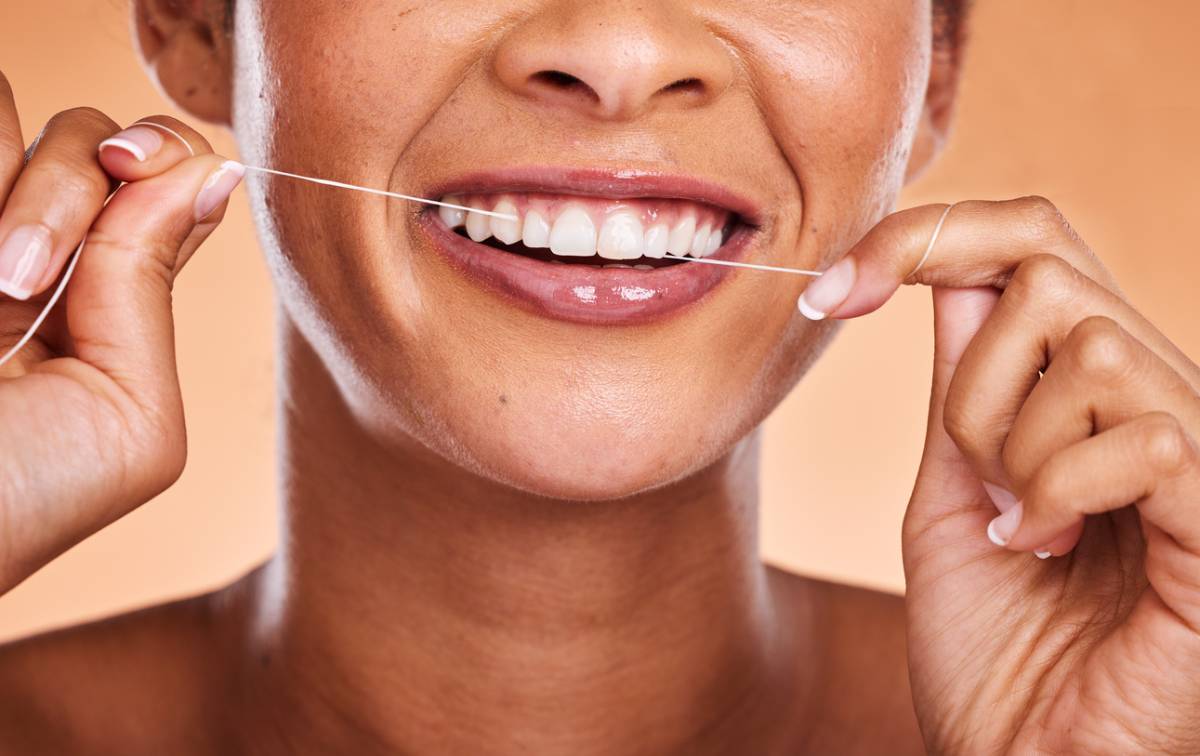Dental bonding involves the application of tooth-colored resin to your teeth. It can repair damage and improve the overall appearance of your teeth. It can address a number of issues, including chips, cracks, gaps, and discoloration. Compared to alternative options, dental bonding is cost-effective, safe, and doesn’t require a long recovery period. You may wonder, can you floss bonded teeth? Below you will find more information about the treatment and how to ensure your dental bonding lasts.
Can You Floss Bonded Teeth?
Your oral care routine is integral to the longevity and success of your oral health. Flossing is a major part of that, so it’s important to floss daily. This is because plaque and other food particles can lead to tooth decay and gum disease. This can impact your teeth, gums, and overall oral health. You should care for your bonded teeth just like your natural teeth, which includes flossing. Bonded teeth can be flossed, so it’s important to floss daily. You can use traditional floss or a floss pick, depending on your preference.
Flossing bonded teeth is similar to flossing your natural teeth. However, it’s important to be as gentle as possible around your bonded teeth. This can preserve them and ensure that the bonding doesn’t come loose. Avoid jostling your teeth too much or using a sawing motion when flossing, as this can cause damage. Gently floss between your teeth, sliding down each side for maximum benefits. If you struggle with flossing your bonded teeth or if you experience any pain or discomfort, talk with your dentist. They can provide guidance on the best products to use, in addition to advising you on your oral hygiene routine.
Caring For Your Dental Bonding
Taking care of your bonded teeth includes more than just flossing. Depending on how you care for your dental bonding, it can last up to a decade. The following tips can help preserve your dental bonding to ensure they last for the long run.
Oral Care Routine:
Your oral care routine should include brushing at least twice a day for two minutes with a soft-bristled toothbrush. Ideally, you should brush after every meal. However, if you cannot brush, rinse your mouth with mouthwash or water to remove harmful bacteria and any leftover food debris. Be sure to wait 30 minutes after you eat to brush, as it can help preserve your enamel (the outermost layer of your teeth).
Regular Dental Visits:
Regularly visiting the dentist is a non-negotiable when it comes to your oral health. It is recommended that you visit the dentist at least every six months. If you have a history of tooth decay or gum disease, you may need to visit more often. Talk with your dentist about when and how often you should visit.
Avoid Certain Foods:
While dental bonding is durable and long-lasting, it is not indestructible. Be sure to avoid hard or sticky foods, as they can cause damage to your bonded teeth. Things like hard candy, caramel, chewing gum, and nuts should be avoided or consumed in moderation with care.
Use A Mouthguard:
If you grind your teeth at night or participate in physical activities, consider using a mouthguard. You can get fitted for one with your dentist. This can be a great investment in your oral health as it can protect your bonded teeth and preserve your natural teeth.

